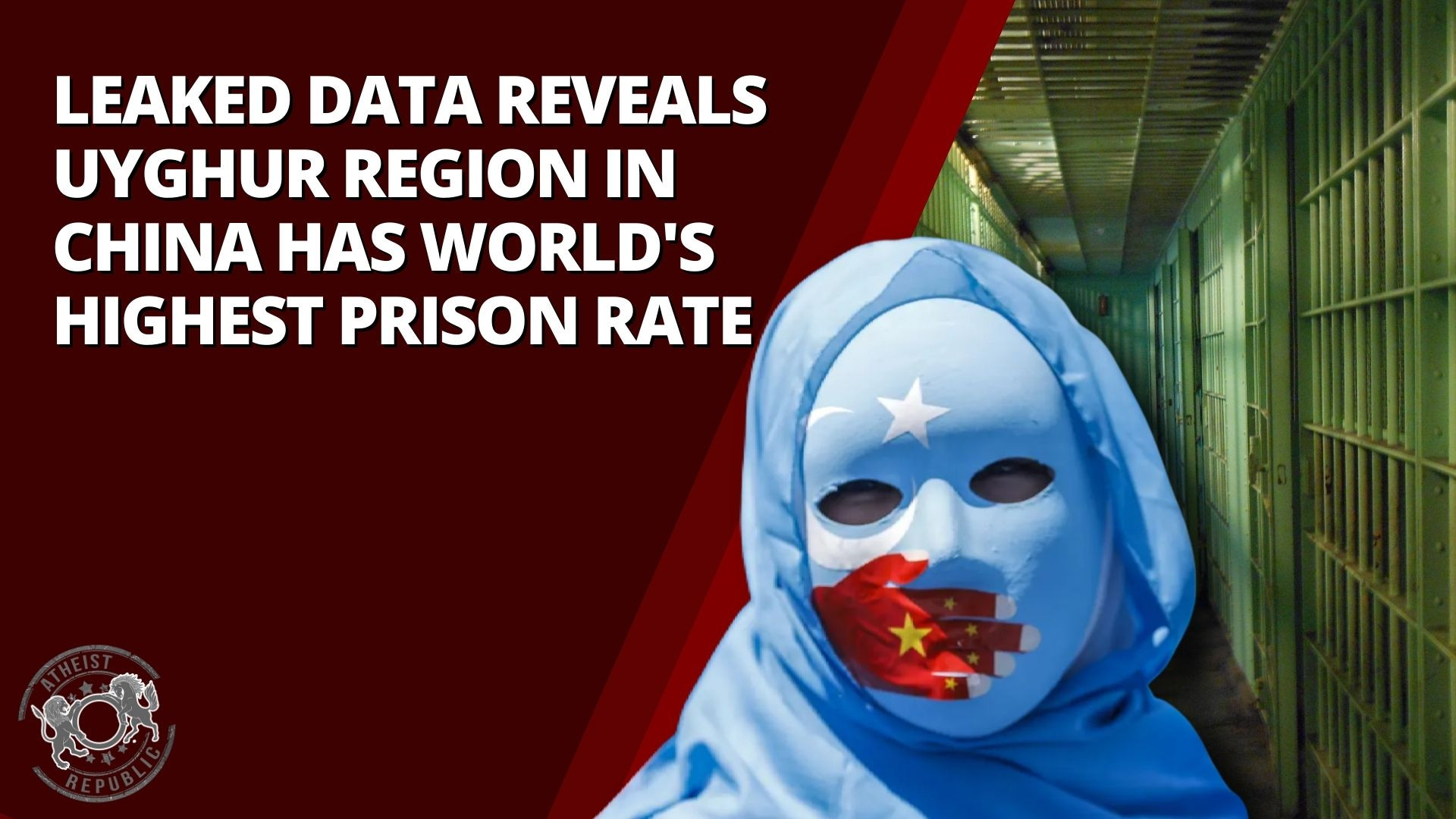
The Associated Press (AP) acquired more than 10,000 names of Muslim minority Uyghurs from Konasheher County who were imprisoned due to China's "war on terror." The leaked data reveals that nearly one in 25 Uyghurs in that county received prison sentences based on trumped-up terrorism-related charges, achieving the highest incarceration rate in the world. Konasheher is only one of several counties in southern Xinjiang that form the Uyghur bosom of China.
This list exposes how China depends on the "war on terror" ruse to keep more than a million Uyghurs suppressed with long-term imprisonment or internment camps. In 2019, after intense international protesting, the government proclaimed the closure of short-term internment camps where Uyghurs were disposed of without official charges. Yet those who were imprisoned remained for many years.
One Uyghur farmer named Rozikari Tohti, who rejects religious beliefs, is serving a five-year prison sentence for "religious extremism." His cousin, Mihrigul Musa, was shocked, saying: "Never did I think he would be arrested.” Musa is now living in Norway.
The U.S. says China has detained more than a million Uighurs, with many being forced to abandon Islam and their Uighur language. Beijing says they are held in reeducation camps, but survivors call them prison camps "with unimaginable oppression inside." https://t.co/wymc5ZGkhq
— PBS NewsHour (@NewsHour) February 9, 2022
Musa then learned that Tohti's younger sibling, Ablikim Tohti, was convicted to a seven-year sentence for "gathering the public to disturb social order." And a farmer named Nurmemet Dawut, Tohti's next-door neighbor, was handed an 11-year sentence for the same charge, plus "picking quarrels and provoking troubles."
More than 267,000 Uyghurs live in Konasheher County. The leaked list revealed that the prison terms handed out across the region were two to 25 years, with an average nine-year sentence. Uyghurs in exile have disclosed that most of those sentenced with harsh lengthy sentences in 2017 are still in prison.
Those wrongfully imprisoned come from various walks of life, and they include both men and women, the elderly and the young. The one thing that they all have in common is that they are all Uyghurs.
The spokesman for Xinjiang, Elijan Anayat, denies that by saying: "We would never specifically target specific regions, ethnic groups or religions, much less the Uyghurs." Additionally, he stressed, "We would never wrong the good, nor release the bad." Anayat said.
Gene Bunin, a Xinjiang scholar, acquired the list from an anonymous person who claims to be a member of China's Han Chinese majority yet "opposed to the Chinese government's policies in Xinjiang" leaked the list.
The AP ultimately acquired the list from Abduweli Ayup, an exiled Uyghur linguist in Norway.
By interviewing eight Uyghurs who recognized 194 of those named, the Associated Press could authenticate it. The Uyghurs identified recordings of phone calls with Chinese officials, legal notices, and the checking of addresses, birthdays, and identity numbers.
In 2017, a relative informed Nursimangul Abdureshid that her brother and parents were sent to the "internment camp" to "study" — a sly reference to the short-term detention camps. Three years later, the Chinese embassy informed her that her family members had been convicted and sent to prison for more than ten years. "It's a total lie. They just try to whitewash their crime," said Ms. Abdureshid, now exiled and living in Turkey.
Since receiving that call, the leaked list was the first time she obtained information that her brother, Memetali Abdureshid, 32, was sentenced to 15 years, 11 months. He was charged with "picking quarrels and provoking trouble" and "preparing to carry out terrorist activities." She saw eight names of other people she recognized on the list but saw nothing about her parents.
After speaking with the AP, six other exiled Uyghurs and Ms. Abdureshid believe the list is incomplete since they did not see the names of other people they knew. Therefore the rate of imprisonment is likely much higher.
The head of the Uyghur Association of Victoria, Alim Osman, advised such lists as the leaked one authenticated by The AP were valuable resources for Uyghurs worldwide by helping them find their loved ones who ultimately disappeared. "All the communities here that lost their family members or loved ones or friends, they would be looking at the list," said Osman.
He added, "In Australia, we have around 3,000 Uyghur population, and every one of us knows someone — from their family members, friends, classmates or teachers — [who] disappeared. So this is no surprise to us."
